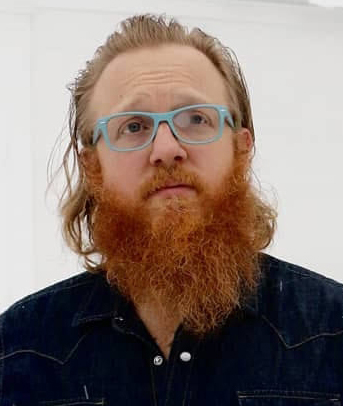During a late-night doom-scrolling session on my phone, those all-knowing algorithms of social media converged and hacked up a hairball-like collection of my recent online search results.
Cosmic Creepers, our jumpy black cat, a master of regurgitating all things grossly arbitrary, couldn’t have done a better job himself of producing intriguing clumps of information worthy of my disdain and curiosity.

Justin Cox
Searching for sleep but finding no rest, my thumb flicked upward, pushing me ahead in search of meaning like the main character from a Cormac McCarthy novel. Hoping the universe would show me a sign somewhere between status updates and trendy memes, I started to notice I was being bombarded with ads for bread starters. Specifically, a sourdough of West Coast origins whose roots date back 200-plus years.
A small time capsule of flour, water and the work of angels collecting yeasts in the ethereal plans. A holy trinity whose essences combined produces a substance worthy of being broken over Communion plates. A starter, a small but crucial addition, gives needed lift to those looking to raise loaves. A starter, working like a set of lungs, breathes life into where it goes.
The one being subliminally peddled to me has been going strong since Nat Turner received a sign from the heavens sending him revolting for freedom’s sake.
“The last thing I need is another Mason jar filled with questionable contents pushed to the back of the fridge.”
I held back from clicking the enticing link. The last thing I need is another Mason jar filled with questionable contents pushed to the back of the fridge. I’ve got a regular Beekman’s World science lab happening behind jars of Duke’s Mayonnaise, containers of buttermilk, not to mention forgotten vessels of Ghosts of Starters Past. Opening the door to grab a snack is an experience equal to peering down into a valley of dry levain. In such moments I’m left hoping and praying they’ll all live again.
I scrolled on, but like a beagle hound catching a scent, I couldn’t shake an idea from my head.
How could something so old, small and seemingly trivial continue to create? Have you ever seen the minuscule amount of starter needed to make bread? We’re talking 50 grams, give or take.
I’ve scraped heftier things off my shoe while walking through a neighbor’s yard. Their property riddled with the efforts of two large canines whose fertilizing capabilities would cause Shetland ponies to blush. Both cases are downright impressive, if not a little off putting in odor.
Tackling the art of bread making, wading into the kneading-waters, a revelation awaits: the devil is in the details. Meaning the most infinitesimal of elements has the most impact.
I sat with this thought for an afternoon, swirling it around like a fine spirit, afraid to drink too hurriedly or deep out of fear I’d miss appreciating it. One thought turned to another, and my lens of faith broke down the door the way it tends to do in a disruptive fashion. My answer came in a series of contemplative questions:
- What part of my faith lies dormant, waiting to be activated?
- What tiny ingredient impacts my character and feeds a hunger for how I desire to live my life and call in the world?
- What wild agent causes my soul to bubble over and push outward, challenging all it comes in contact with?
I don’t know if I arrived at a definitive answer, but my heart fluttered, and my spirit sharpened when I thought of kinship.
Where I’m from, there are three types of kin.
You’ve got blood-kin, those who share a piece of your genetic makeup. I’m not a good enough writer to describe how our blood-kin connections bind us to one another, especially on occasions when difficult conversations ensue. Leaving me shaking my head at the chasm, the folly, the unsettling gap unfurling in my genealogy. All I can muster to myself and to anyone listening is, “Yeah, I know cousin so-in-so is out there, but hell — they’re family.” While they might get regulated to arm-length status, blood-kin are within reach, for better or for worse.
“Yeah, I know cousin so-in-so is out there, but hell — they’re family.”
Then there are kinfolk we choose to build and create with. People who are invited in or crash into our lives. Some of them met us at the lunch table in fourth grade, where our bond was sealed over having the same Fruit by the Foot snack in our matching Teenage Mutant Ninja Turtles lunchbox. Others greeted us at our college dorm as room or hallmates, walking awkwardly with us into a future we couldn’t plan for even if we tried. Or, some caught the Letterkenny reference in the work break room when we announced to the group, “pitter-patter, let’s get at ‘er.” Many in this category I would accompany to investigate a strange bump in the night. Maybe.
And finally, there is the kin I never met. Those I’ve heard of, learned about in classrooms and stumbled upon in citations. Most entered my life through a portal composed of dripped ink and paper. Their thoughts pouring into me are the same as the ones I’ve never been bold enough to speak aloud. Regulating them to be held in a state of prostration beside me as I lay in bed at night. Offering me proof of some soul existing out there, in another time and place, who were and are like me. My spiritual kin.
Who are they? A people the Rev. Daniel Featly would describe as indecent “dippers.”
A brood who held no loyalty to institutions but were compelled by their convictions. They sought total separation between church and state. Refused to bear arms against another in the name of war. Opposed the death penalty. Would not serve on juries to judge others or swear on a Bible, even if it had the king’s name on it. A people who believed encounters with the divine were the business of an individual and their Maker. A freedom extended to all.
To live counter to this was to practice an abhorrent faith.
What happened to these people?
Where are these baptists today?
Felix Mantz, Menno Simmons, Hubmaier, Grebel, Blaurock, Joan Boucher, Smyth, Helwys, Anne Hutchinson, Bunyan, Roger Williams, Backus, Hannah Lee Corbin, Leland, Helen B. Montgomery, Rauschenbusch, Thurman, King? Where are these unapologetic voices crying in today’s wilderness?
Why do I struggle, in the words of sparse steeple attendee, the prophet farmer Wendell Berry, to accept their “contrariness as my inheritance and destiny?” The invitation, their call, for me to journey down the beaten yet out-of-the-way path behind them. My feet stepping where they stepped, on the unconventional brush first stomped down by the despised Galilean himself. Where will that path lead? Most likely being called everything but a child of God by those who would call me a neighbor right before the start of the next trustee meeting.
Being a pastor, a preacher, you learn to let go of much. You leave things behind in every move. Like an item dropped off at a holiday bazaar, you hope what you left finds a good home and takes root.
I have let much slip away, but my contrarian kinship, a life-giving “starter,” I tote with a reverence usually reserved for family heirlooms. Because in the truest sense, it is from my family, and I’m done apologizing for my upbringing.
Call me friend, brother, blasphemer, backslider, heretic, one of them bullheaded baptists, or s.o.b. So be it.
I know I’m in good company.
Justin Cox received his theological education from Campbell University and Wake Forest University School of Divinity. He is an ordained minister affiliated with the Cooperative Baptist Fellowship and enrolled in the doctor of ministry program at McAfee School of Theology. Besides reading, spending time in the kitchen and amateur gardening, Justin spends time with his spouse, Lauren, and their two daughters. He began his tenure as senior pastor of Second Baptist Church in Suffield, Ct. in August. Find his ramblings at blacksheepbaptist.com.
Related articles:
Saints don’t have to be dead: gratitude for regular, blessed folk through whom goodness shines | Opinion by Molly Marshall
When we forget our history, institutions do the sinning for us | Opinion by Greg Jarrell


